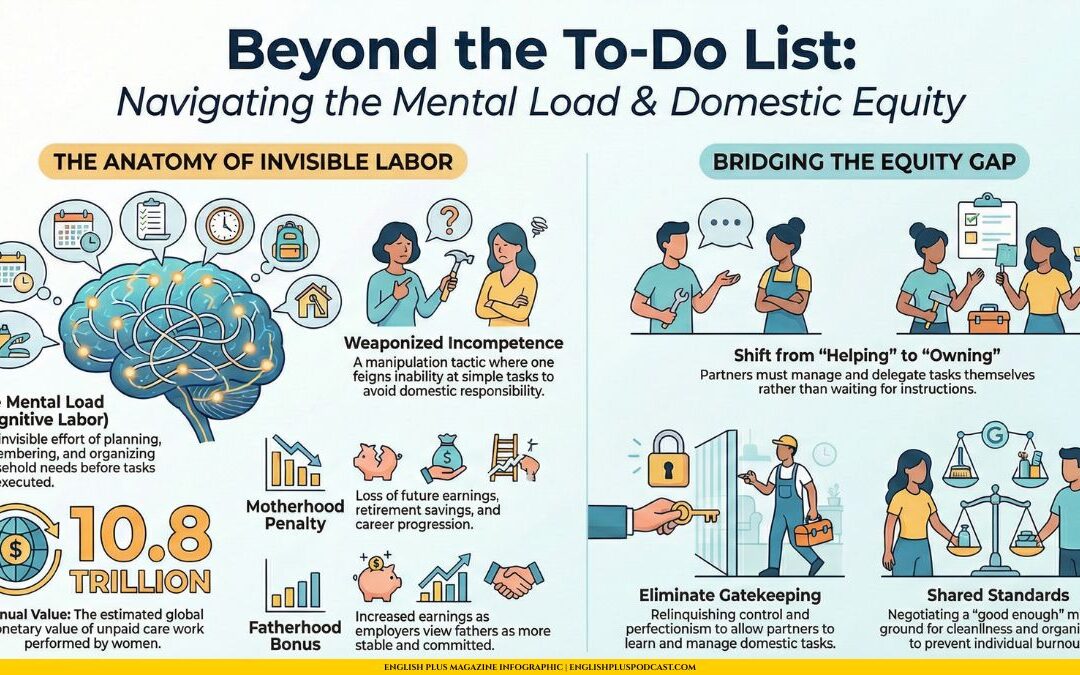Is Your Brain Lying to You? 🤔
Welcome to “Fact or Fallacy?”, the quiz that puts your knowledge of your own mind to the test! We all navigate the world with a set of beliefs about how we think, remember, and make decisions. But what if some of those core beliefs are actually myths? From the idea that memory works like a camera to notions about “left-brained” people, our culture is filled with psychological folklore.
This quiz is more than just a test; it’s a journey of discovery. By tackling these 20 common misconceptions, you will not only learn to separate scientific fact from popular fallacy, but you’ll also gain a profound understanding of the cognitive biases that shape your perceptions every day. The benefit? Clearer thinking, better decisions, and a fascinating insight into the hidden architecture of your own mind. Let’s find out what’s fact and what’s fallacy!
Learning Quiz
This is a learning quiz from English Plus Podcast, in which, you will be able to learn from your mistakes as much as you will learn from the answers you get right because we have added feedback for every single option in the quiz, and to help you choose the right answer if you’re not sure, there are also hints for every single option for every question. So, there’s learning all around this quiz, you can hardly call it quiz anymore! It’s a learning quiz from English Plus Podcast.
Quiz Takeaways | The User Illusion: A Guide to Your Brain’s Hidden Biases
Hello, and well done on navigating that minefield of myths and misconceptions! Whether you aced the quiz or were surprised by some of the answers, you’ve taken a huge step toward understanding the true workings of your mind. We like to think of ourselves as rational beings, sitting in a control room in our heads, making logical decisions. But the reality is far more interesting, and far stranger. What you’ve just explored is the world of cognitive biases and brain fallacies—the shortcuts, glitches, and illusions that are a fundamental part of our mental operating system.
Let’s start with the big picture. Many of the fallacies we debunked, like the “left-brain/right-brain” theory or the myth that we only use “10% of our brain,” are examples of how pop psychology oversimplifies complex science. The brain is not a neatly divided organ with vast dormant regions; it’s a highly integrated, incredibly active network where nearly all parts are working together, all the time. Similarly, the idea that you have a fixed “learning style” or that handwriting analysis can reveal your personality are pseudosciences that offer easy answers but have no basis in scientific evidence. They persist because they feel intuitive, but they fall apart under rigorous testing.
A huge part of this user illusion comes from memory. Our quiz began with the foundational myth that memory works like a video camera. It doesn’t. It’s a reconstructive process. This single fact explains so much about our fallibility. It’s why “Hindsight Bias,” the “I-knew-it-all-along” effect, is so powerful. Once we know the outcome of an event, our memory reconstructs our past mental state to make it seem like we predicted it. We don’t feel like we’re lying; we genuinely misremember being less certain than we were.
Then we have the vast category of cognitive biases, which are essentially mental shortcuts (or heuristics) that have gone wrong. Our brains evolved to make quick decisions to ensure survival, not to be perfectly logical. The “Availability Heuristic,” for instance, makes us fear the dramatic shark attack over the mundane coconut because scary stories are more easily available in our memory. The “Negativity Bias” is its cousin, making us pay far more attention to a single criticism than a dozen compliments because, in our evolutionary past, noticing a threat was more important than noticing a pleasant flower.
Many of these biases affect our social perceptions. The “Halo Effect” is a great example. Our brain takes a shortcut: if a person is attractive (an easy-to-spot trait), we assume they are also smart, kind, and trustworthy, saving us the cognitive effort of evaluating those traits separately. The “Fundamental Attribution Error” is another social shortcut: when someone else makes a mistake, we attribute it to their character (“He’s a bad driver”), but when we make the same mistake, we attribute it to the situation (“The sun was in my eyes”). It’s a bias that protects our ego and simplifies our judgment of others.
Other biases trap us in bad decisions. The “Sunk Cost Fallacy” makes us throw good money after bad, continuing a failing project simply because we’ve already invested so much. The “Bandwagon Effect” pressures us to conform, making us believe an idea is good simply because it’s popular. And “Confirmation Bias” might be the most powerful of all, acting like a filter on reality that only lets in evidence confirming what we already believe. It’s why changing our minds is so difficult.
Finally, we have biases that warp our sense of self and our place in the world. The “Dunning-Kruger Effect” reveals that we often need a certain level of competence just to be able to recognize our own incompetence. The “False Consensus Effect” makes us believe we’re more “normal” than we are by tricking us into overestimating how many people agree with us. And “Survivorship Bias” gives us a distorted view of success by making us focus on the few winners who made it, while ignoring the millions who failed.
Understanding these biases isn’t about feeling bad that our brains are flawed. It’s about recognizing that our perception of the world is not a direct, objective stream of information. It’s an actively constructed model, full of shortcuts and illusions. By learning their names and how they work, you’ve gained the ability to press pause, to question your first instinct, and to ask, “Is that really true, or is that just a bias talking?” That, right there, is the beginning of true wisdom.










0 Comments